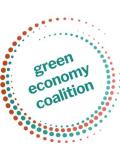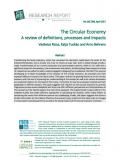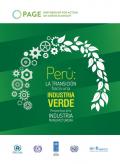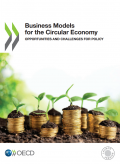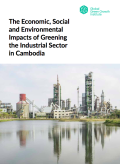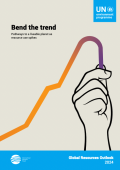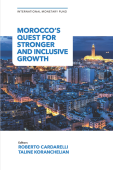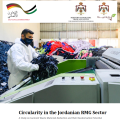
Manufacturing offers greater opportunities than other sectors to accumulate capital, exploit economies of scale, acquire new technologies and – more fundamentally – foster embodied and disembodied technological change. The world’s manufacturing value added (MVA) reached an all-time high of $8,900 billion in 2012 (16.7 percent of global GDP). It is thus the core of economic growth and structural transformation. (UNIDO, 2013). However, due to this industrial structural change, the manufacturing sector imposes direct pressure on the environmental and health risks associated with air pollution, hazardous substances, and waste.
Green manufacturing aims to reduce the amount of natural resources needed to produce finished goods through more energy- and materials-efficient manufacturing processes. This will involve attention to the lifecycle of the product and involving, in particular, supply chain firms and small and medium-sized enterprises. Improved resource-efficiency and decoupling can lead to competitive advantages and sustainable growth.
Relevance to the SDGs
The Sustainable Development Goal (SDG) 12 calls for production processes to be more resource-efficient and for the reduction of waste generation through prevention, reduction, recycling and reuse. In addition, SDG 9, target 9.2 calls for increasing the share of employment and GDP from industry in least developed countries.
SDG 9.2
Manufacturing Jobs in LDCs SDG 12.2
Natural Resource Management
Innovative manufacturing business models need suitable financial instruments. Financial instruments, such as green bonds, are increasingly being used to raise money for more environmentally friendly manufacturing processes, including energy efficiency upgrades, shifting to renewable energy, manufacturing clean technology products, using renewable (non-depleting) materials, applying green chemistry practices, reducing waste, implementing efficient water use, and recycling.
Financial assistance programs offer financial and advisory services to support the greening of manufacturing. The International Financial Corporation (IFC) provides advisory and investment assistance to help businesses adopt cleaner technologies in the manufacturing sector, which includes input on project design or new technologies. The IFC supports the growth and transfer of clean energy in emerging markets through several financing platforms, and at various stages of development. The Green Economy Financing Facility (GEFF) supports manufacturers to access the finance needed to invest in higher performance green technologies through lines of credit of local banks, microfinance institutions and leasing companies. Typical financing structures include project finance, corporate loans with specific use of proceeds on green projects, green and social bonds, ESG-indexed loans and revolving facilities where price is linked to ESG performance.



